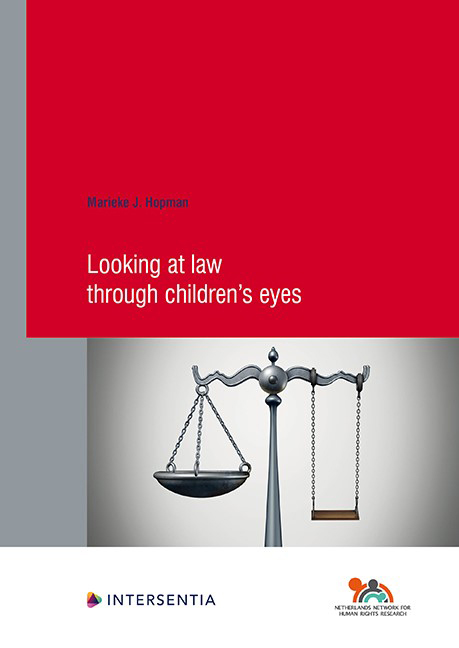Chapter 4 - Finding Law for Children: Methodology
Published online by Cambridge University Press: 25 May 2021
Summary
After having created a theoretical framework for finding law for children, including a definition of law (chapter 1), an adult view of law for children (chapter 2) and a theory of children's legal plural orders (chapter 3), the current chapter will focus on how to empirically find law for children.
The chapter will start with a general methodology for understanding social action – of which legal action is defined as a subcategory – following Max Weber (§4.1). In §4.2, I will give an overview of how the child's perspective has been incorporated into academic research so far. After discussing developments and methodologies for listening to children / child participation in academic research, a methodology will be designed for looking at law through children's eyes. This section will argue that we have to engage children directly in the research and engage in research together with participants as equals. To realize this, I will use the educational methods of inquiry learning (§4.3.1) and philosophy for children (§4.3.2). Under §4.4, I will work out in detail a step-tostep guide to finding law for children.
FINDING LAW: MAX WEBER'S METHODOLOGY FOR UNDERSTANDING SOCIAL ACTION
Since in chapter 1 we concluded that law is a social fact, and that a law is a valid legal norm created by the sovereign, who is sovereign because of the recognition of the legal community of the basic norm, what is law ultimately depends on the community. If not, rules are like the rules created by a man in a psychiatric institution who thinks he is Napoleon; they are not recognized as legal by the relevant community and therefore they are not laws. In this sense, we can understand Ehrlich who says that, to find law, there is no other way but to observe and ask people.
How then should we do this? A possible answer to the question of methodology might be found in the writings of Max Weber. Weber tells us that the human individual engages in social action; this is the action of an individual to which s/he attaches subjective meaning and, in this subjective meaning, s/he takes into account the behaviour of others, by which the action is oriented in its course. Social action, according to Weber, “may be guided by the belief in the existence of a legitimate order”.
- Type
- Chapter
- Information
- Looking at Law through Children's Eyes , pp. 87 - 124Publisher: IntersentiaPrint publication year: 2021

